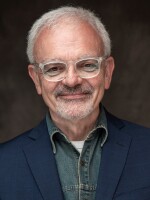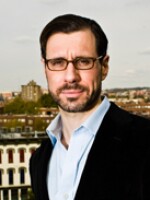SHEILAH KAST, host:
This is WEEKEND EDITION from NPR News. I'm Sheilah Kast.
The worsening situation in the Middle East has become the primary focus of the annual G8 Economic Summit taking place in St. Petersburg, Russia. President Bush, following a meeting with British Prime Minister Tony Blair earlier today, defended Israel's right to protect itself against terrorist attacks.
President GEORGE W. BUSH: And again, I'll repeat, this started because Hezbollah decided to capture two Israeli soldiers and fire hundreds of rockets into Israel from southern Lebanon. That's the cause of the crisis. And so our message to Israel is look, defend yourself. But as you do so, be mindful of the consequences. And so we urge restrain.
KAST: But there have been strong criticisms of Israel from other leaders at the summit, where work has begun on a joint statement on the crisis from the entire G8.
NPR's White House correspondent, Don Gonyea, is in St. Petersburg, as is our Moscow correspondent, Gregory Feifer. They join us now.
Don, I understand you have a copy of the statement the G8 has crafted. What does it say?
DON GONYEA reporting:
It starts with an expression of deepening concern about the situation in the Middle East, citing rising civilian casualties on all sides. It says its goal is an immediate end to all of the violence. It also endorses the U.N. mission that is now in the region. It goes on to blame the immediate crisis on what it calls extremist forces working to destabilize the region, specifically listing Hamas and Hezbollah. It does blame Israel for over-reacting, as Russian President Putin has done here at the summit. That's not in the statement.
It does say that Israel, while exercising the right to defend itself, has to be mindful of the strategic and humanitarian consequences of its actions. It urges Israel to use quote utmost restraint. It also calls for those captured Israeli soldiers to be freed.
KAST: Gregory, you cover President Putin. He, too, has been critical of Hezbollah. But at the same, he's been among the most prominent critics of the Israeli military response. How's that playing out at the summit?
GREGORY FEIFER reporting:
Well, Putin has called Israel's actions unacceptable. At a news conference last night, he said not all peaceful solutions have been pursued and that Israel is pursuing wider goals than just the release of its two kidnapped soldiers. His position is closer to most of the other G8 member leaders here, who hope that the U.S. will shift its stand, at least somewhat.
The head of the Foreign Affairs Committee in the Russian parliament just told me that the Israeli assault on south Lebanon was making Hezbollah stronger, while Foreign Minister Sergei Lavrov today said Russia's pushing for action on the Middle East crisis, and not just a banal response. Legislature - legislator Kosachev said that he wanted the G8 to give instructions to the quartet of Middle East mediators to take action over the issue.
KAST: Gregory, this is the first time Russia has ever hosted a G8 summit. And as host President Putin set the agenda for formal discussion. But do the Russians feel their moment in the spotlight has been sort of hijacked by the crisis in the Middle East?
FEIFER: Well, Moscow had wanted to push energy security as the main issue here, to highlight Russia's new influence in the world as a major energy exporter. But that's also a weak point for Russia. Western countries criticize Russia for using energy as a political tool. So the Middle East crisis may actually be good for Russia's image, showing President Putin discussing the issue at a table with the big players. Putin has been looking very relaxed and confident here.
At the same time, officials are telling me that the original agenda isn't being affected, and that everything is going according to schedule. The G8 leaders have already signed agreements on energy security, as well as infectious diseases, and education.
KAST: And Don, among those other pressing international matters before the summit, the standoff with North Korea over its nuclear weapons program and recent missile tests. Have the leaders done anything on that?
GONYEA: Nothing formal so far, but we are hearing praise from the president here for a Japan-sponsored resolution at the United Nations. That sets up sanctions against North Korea. It was unanimously passed by the Security Counsel. It bans U.N. member states from dealing in material or technology for missiles or WMDs with North Korea.
The president today, in a meeting with the leader China, made a big deal out of the fact that China voted for it. It does not - it does - I'm sorry - address the concerns that China has and Russia had, in that it makes no mention of possible military action against North Korea, focusing instead on the sanctions. North Korea, I should add, though, has rejected that resolution. Though the White House says that was to be expected.
KAST: NPR's Don Gonyea and Gregory Feifer at the G8 Summit in St. Petersburg, Russia.
Thank you both.
GONYEA: A pleasure.
FEIFER: You're welcome. Transcript provided by NPR, Copyright NPR.








